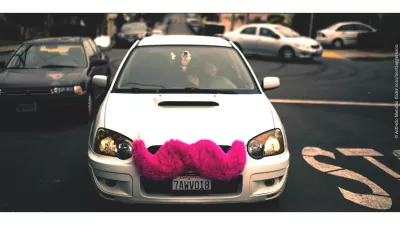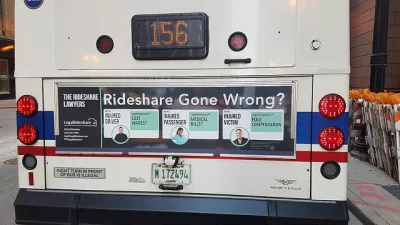Two experts consider the future of cab companies in the age of Uber and Lyft.
As the rise of transportation network companies (TNCs) globally erodes the franchises of locally regulated taxis, cities are at risk of losing their regulated, insured cab fleets. Municipalities are weighing ways to capitalize on new technologies while still maintaining options for passengers across neighborhoods and socioeconomic levels.
Drawing on remarks recently made on the VerdeXchange 2015 Conference panel "How Technology and Competitive Drive Are Reinventing Mobility and the Urban Environment," Bill Rouse, General Manager of Yellow Cab of Los Angeles, and Gabe Klein, a Special Venture Partner at Fontinalis Partners with experience leading public-sector DOTs, offered their perspectives on changes to urban ground transportation.
Klein provided an example of a city proactively addressing the problem: "Washington D.C. is leading the way—as it has on things like bike share, circulator buses, and streetcars. The D.C. model for deregulation of the taxi industry—creating a co-op as a virtual layer of management that unifies the taxi industry—and putting every taxi in the city on one app creates an environment of healthy competition. It’s allowing the taxi industry to step up its game. At this point, most of the taxi companies want to step up their game if the government would let them."
FULL STORY: TNCs Challenge 20th-Century City Taxi Regulation: Reinventing Urban Mobility

Alabama: Trump Terminates Settlements for Black Communities Harmed By Raw Sewage
Trump deemed the landmark civil rights agreement “illegal DEI and environmental justice policy.”

Study: Maui’s Plan to Convert Vacation Rentals to Long-Term Housing Could Cause Nearly $1 Billion Economic Loss
The plan would reduce visitor accommodation by 25% resulting in 1,900 jobs lost.

Planetizen Federal Action Tracker
A weekly monitor of how Trump’s orders and actions are impacting planners and planning in America.

Wind Energy on the Rise Despite Federal Policy Reversal
The Trump administration is revoking federal support for renewable energy, but demand for new projects continues unabated.

Passengers Flock to Caltrain After Electrification
The new electric trains are running faster and more reliably, leading to strong ridership growth on the Bay Area rail system.

Texas Churches Rally Behind ‘Yes in God’s Back Yard’ Legislation
Religious leaders want the state to reduce zoning regulations to streamline leasing church-owned land to housing developers.
Urban Design for Planners 1: Software Tools
This six-course series explores essential urban design concepts using open source software and equips planners with the tools they need to participate fully in the urban design process.
Planning for Universal Design
Learn the tools for implementing Universal Design in planning regulations.
Caltrans
Smith Gee Studio
Institute for Housing and Urban Development Studies (IHS)
City of Grandview
Harvard GSD Executive Education
Toledo-Lucas County Plan Commissions
Salt Lake City
NYU Wagner Graduate School of Public Service




























